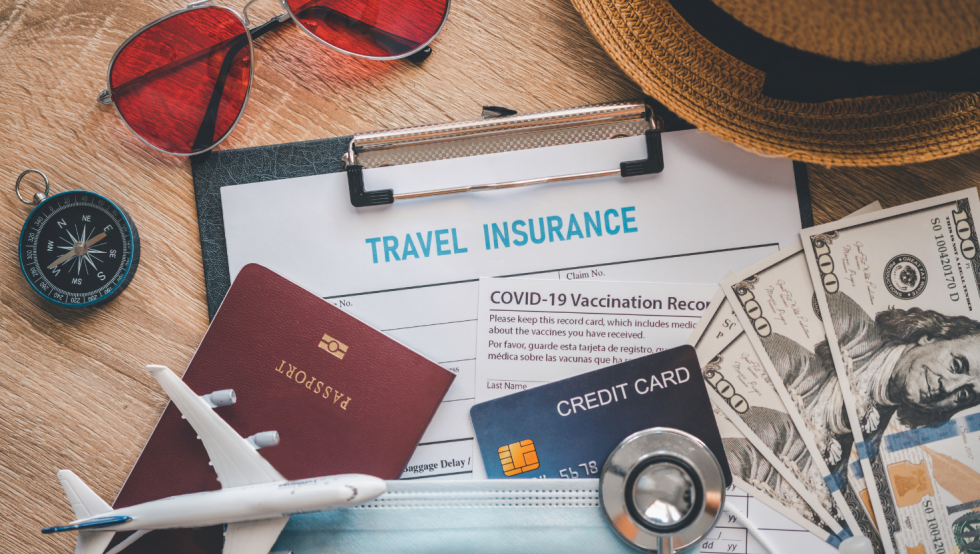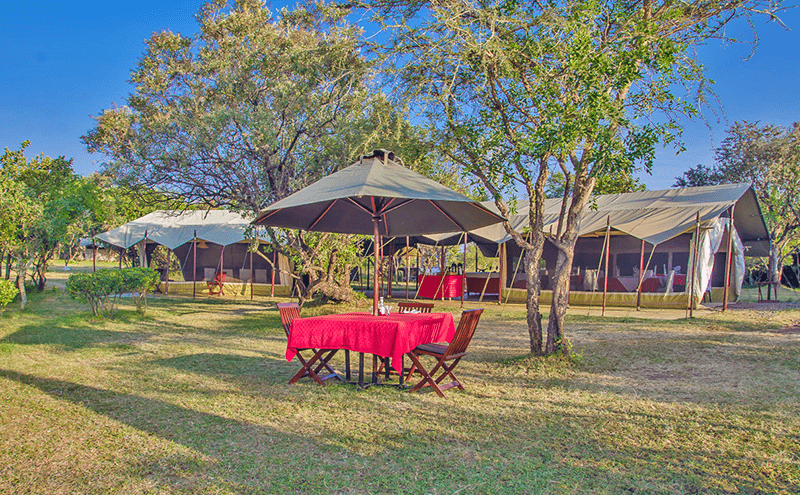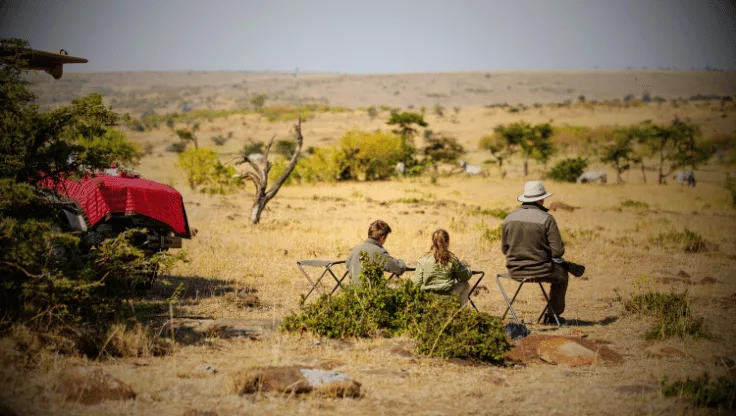Picture this — your dream safari has finally arrived. After months of planning and anticipation, you’ve landed in the heart of the wild, exactly where you always envisioned yourself. But as you begin to settle into camp, an unexpected surprise hits you — hidden charges!
And to make it worse, these are charges that you didn’t budget for or even know existed. Not the kind of adventure twist you were hoping for, right? That’s why planning, in this case budgeting for a safari isn’t just about flights and accommodation, it requires thoughtful planning and sometimes expert advice.
For many travelers, a safari is a once-in-a-lifetime experience, and the last thing you want is unexpected costs dampening the excitement.
This guide will walk you through all the hidden safari fees you need to know about — so you’re well-prepared, not caught off guard.
Table of Contents
- Hidden Cost 1: Park Fees
- Hidden Cost 2: Vehicle Entrance Fee
- Hidden Cost 3: Travel Insurance
- Hidden Cost 4: Activities
- Hidden Cost 5: Full Board & Drinks
Hidden Cost 1: Park Fees
Now it’s very important to note that the park fees are tailored to cater for Kenyan citizens, East African residents, and Non-residents, each with substantially different pricing levels while children under the age of 8 are exempt from these charges.
Whether Accommodated inside or outside the Masai Mara National Reserve:
A) Kenyan Citizens (1st July to 31st December)
| PERSON | DESCRIPTION | RATE |
| Adult | Per person – Per day | 3,000 KES |
| Child (9 – 17 years) | Per person – Per day | 500 KES |
B) East African residents (1st July to 31st December)
| PERSON | DESCRIPTION | RATE |
| Adult | Per person – Per day | 5,000 KES |
| Child (9 – 17 years) | Per person – Per day | 2,000 KES |
C) Non- residents (1st July to 31st December)
| PERSON | DESCRIPTION | RATE |
| Adult | Per person – Per day | 200 USD |
| Child (9 – 17 years) | Per person – Per day | 50 USD |
- Validity Period: A critical update many travelers miss is the reduction of park ticket validity from 24 hours to just 12 hours. This simply means that if you’re staying overnight inside the Masai Mara National Reserve, you’ll need to pay for an additional 12-hour entry the next day. For non-residents, that’s an extra $200 per person—a hefty surprise indeed!
- In addition to individual park entry fees, it’s important to note that park fees are also charged for the safari vehicle and driver. These charges can vary depending on the type of vehicle and the duration of stay within the reserve. In many cases, if you’ve booked your safari through a tour operator, these fees are typically included in your overall package. However, if you’re organizing your trip independently or using a self-drive vehicle, these costs may be excluded and billed separately at the gate. Failing to account for vehicle and driver fees can result in unexpected expenses at entry points—so it’s crucial to confirm this detail when planning your safari, especially for those going the DIY route.
- Note: This extra fee only applies to overnight stays inside the main reserve, not in the Mara Triangle or camps/lodges outside the reserve boundaries. This makes Mara Siria Camp quite ideal and budget-friendly. The camp is located in the Siria escarpment which is positioned to the west of the Masai Mara National Reserve.
How to Pay for Masai Mara Park Entry Fees
You can pay at the gate via:
- MPesa (recommended for Kenyan citizens)
- Credit/Debit Cards (Visa, Mastercard)
- Cash
- Park fees can also be paid online. This option is particularly useful for those planning their trip in advance or aiming to avoid queues at the gate. Several county-operated platforms and park websites allow visitors to book and pay for their entry permits digitally, using methods such as credit/debit cards or mobile money services like MPesa. It’s advisable to confirm the official payment portal or consult your lodge or tour operator to ensure you’re using the correct platform and receiving a valid e-ticket.
The main entry gates which include; Sekenani, Talek, Oloololo, and Musiara—all accept these payment options.
Hidden Cost 2: Vehicle Entrance Fee
It’s important to note that most safari vehicles entering the reserve for game drives are subject to a Vehicle Entrance Fee of 1,500 KES. This fee is mandatory and applies regardless of whether the vehicle is privately owned or operated by a tour company. The rate is for vehicles with seating capacity of 6 to 12 passengers. 7 or 8-seater 4×4 Land Cruisers as well as 8-seater Safari Minivans fit in this category.
 Only the short-chasis 5-seater 4×4 Land Cruiser fits in the category that is required to pay 1000 KES.
Only the short-chasis 5-seater 4×4 Land Cruiser fits in the category that is required to pay 1000 KES.
Below is a breakdown summary of the vehicle entry charges into the Masai Mara National Reserve:
| VEHICLE SPECS | RATE (Per Vehicle) |
| Less than 6 seats | 1,000 KES |
| 6 – 12 seats | 1,500 KES |
| 13 – 24 seats | 3,500 KES |
Self Drives:
It’s worth noting that personal vehicles are still permitted to do game drives within the Masai Mara Triangle. As long as you hold a valid driver’s license and are operating a suitable 4-wheel drive safari vehicle, you’re free to explore the reserve on a self-drive safari adventure.
While some travelers may enjoy the freedom of self-drive safaris, many still prefer the comfort and expertise of a professional guide behind the wheel.
If you’re hiring a vehicle for game drives, it’s highly recommended to ensure that the vehicle is registered as a Tourist Service Vehicle (TSV). This certification confirms that the vehicle meets the required safety and tourism standards for operating within national reserves.
Additionally, the driver or guide should hold a valid professional safari guiding license, which ensures they are trained in wildlife interpretation, safety protocols, and park regulations. Choosing a certified vehicle and guide not only enhances your experience but also ensures compliance with park authorities.
If your accommodation is located outside the Mara Triangle, it’s highly recommended to arrange game drives directly through your camp or lodge.
Be sure to ask in advance:
- How many game drives are included in your stay
- How long each drive lasts
For those not booking through a lodge, local driver-guides are available at approximately $20 per day. They’ll handle the driving, leaving you free to relax and soak in the full safari experience.
When booking directly with a safari camp, it’s important to remember that getting to the camp involves additional transport costs, which are often not included in the accommodation rate. For camps in the Masai Mara, for instance, it’s approximately a 6-hour drive from Nairobi, and this is separate from standard airport transfers.
Alternatively, if you choose to fly into the Mara, you will still need to arrange a camp transfer from the airstrip to the lodge, which may come at an extra charge. Always confirm with the camp whether these transfer costs are included or billed separately to avoid unexpected expenses.
Pro tip: For first-time safari travelers, it’s often wise to book a complete package through a registered tour operator or travel agent. These professionals handle all the logistics—from park fees and transportation to accommodations and guided game drives—ensuring a smooth and stress-free experience. Working with a licensed operator also means you’re more likely to receive reliable service, certified guides, and full compliance with local tourism regulations, giving you peace of mind throughout your safari adventure.
With this in mind, it becomes quite important to factor in some extra costs like:
- Driver Guide charges
- How to get your vehicle registered and approved
Fueling Tip: If you’re driving from Nairobi to the Masai Mara, be sure to refuel in Narok or at petrol stations near Talek, Sekenani, or Oloolaimutia Gate. Fuel stations within the reserve are scarce and tend to charge higher prices.
Pro tip: Always enter the reserve with a full tank to avoid unexpected fuel shortages during your game drives.
Hidden Cost 3: Travel Insurance
By far one of the most important aspects of travelling is insurance – Travel insurance. Its importance comes in that this policy document will ideally protect you from unexpected financial losses and other issues that may arise during a trip; such as medical emergencies, trip cancellations, lost or stolen belongings, and travel delays. Trust me, this provides you with a complete peace of mind and financial security.
 What insurance works for a Safari
What insurance works for a Safari
- For a safari, always remember that the most suitable type is a comprehensive travel insurance
Here’s a summary of what safari travel insurance typically includes:
- Medical and Emergency Evacuation – Services like AMREF Flying Doctors provide critical air and ground medical assistance across Africa. With over 65 years of experience, AMREF is a trusted name in aeromedical evacuation, operating from Wilson Airport in Nairobi and offering global coverage.
- Trip Cancellation Protection – Covers unexpected cancellations due to illness, emergencies, or other disruptions before your safari begins.
- Baggage and Personal Belongings – Provides coverage for lost, delayed, or damaged luggage, including valuable safari gear.
- Adventure Activity Coverage – Ensures you’re protected during high-risk experiences such as game drives, walking safaris, and hot air balloon rides.
What to Consider When Choosing a Safari Travel Insurance
- Compare Multiple Providers; Insurance prices can differ widely even for similar coverage. Some travelers opt for a comprehensive policy covering cancellations for specific reasons (typically costing around 10% of your total trip), while others go for a more affordable post-departure policy—which kicks in once your trip starts and covers medical care, evacuation, trip delays, and baggage loss.
- Consider your travel frequency – Choose Between Single-Trip or Multi-Trip Policies: Single-trip insurance: Best for one-time safaris; covers trips up to ~60 days. Multi-trip annual insurance: Ideal for frequent travelers; covers multiple trips per year, each up to a set number of days (typically 30–45 days per trip).
- Your Policy Should Cover:
– Emergency medical treatment, both locally and internationally
– Evacuation by air, such as through AMREF Flying Doctors or similar providers
– Repatriation to your home country, if medically necessary
– Injuries during adventure activities like horse riding, walking safaris, or hot air ballooning
– Lost, stolen, or delayed baggage
– Trip cancellations, delays, or interruptions
Examples of Insurances/services to consider
- AMREF Kenya; One of the most reputable providers of air medical evacuation across East Africa. A must-have for anyone visiting remote safari regions.
- If you live in the USA try Travel Guard USA; A solid option for travelers based in the United States, offering a wide range of customizable travel insurance plans.
- JustTravelCover; Ideal for travelers over 65 or with pre-existing medical conditions, providing tailored insurance options and medical coverage that standard plans may not offer.
- World Nomads; Perfect for flexible, long-term, or multi-country safaris. Known for covering a wide range of adventure activities
- Allianz Travel; Best for families and international travelers seeking comprehensive coverage.
Hidden Cost 4: Activities
Without a doubt, it’s best practice to take time to fully understand the activities included in your safari package—and whether any of them come at an extra cost.
Some camps and lodges charge for activities individually, either per adult or child, while others may offer group-based pricing for two or four people.
Even if you’ve booked an “all-inclusive” package, it’s important to note that not all experiences are necessarily included, so always confirm what’s covered to avoid unexpected charges during your stay.

Hidden Cost 5: Full Board & Drinks
It’s also important to be aware that most full board safari accommodation typically cover your meals—breakfast, lunch, and dinner—but do not include drinks.
This often comes as a surprise to many travelers expecting beverages to be part of the package. Whether it’s bottled water, sodas, wines, or cocktails, drinks are usually billed separately and can add up quickly, especially during longer stays.
To avoid any confusion or unexpected costs, it’s a good idea to ask your camp or lodge for a drinks menu or price list in advance.
Awareness is Your Best Travel Companion
As exciting and unforgettable as a safari adventure can be, nothing worsens the experience faster than unexpected costs that catch you off guard. From park entry fees and game drive logistics to excluded drinks and activity surcharges, these hidden charges can quietly add up.
That’s why it’s absolutely essential to be inquisitive and well-informed before your trip. Ask the right questions, read the fine print, and clarify what’s included in your package—before you set off. By doing so, you’ll not only avoid last-minute surprises but also enjoy your safari with peace of mind, knowing that every detail has been thoughtfully planned and budgeted for.






